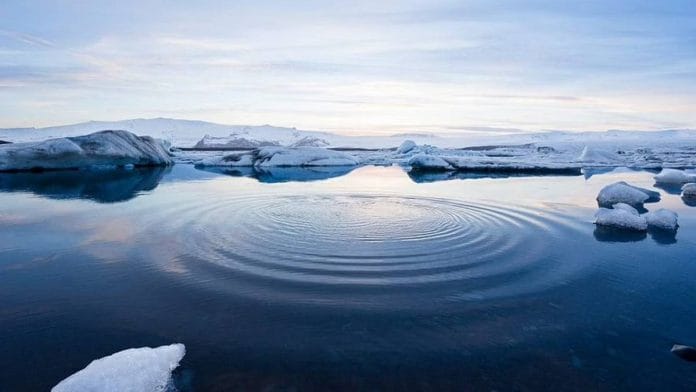Bengaluru: Scientists all over the world are raising the alarm following unprecedented, simultaneous temperature records in the Arctic and Antarctic regions last week. Parts of Antarctica, which is headed for winter, recorded temperatures of up to 40°C above normal for this time of year, while the Arctic recorded temperatures 30°C higher than usual.
The unprecedented warming occurring at both poles, currently in opposite seasons, follows the deadly Pacific Northwest heatwave last year, which altered wind and ocean currents.
Earlier this month, a weather phenomenon known as an atmospheric river carried warmth and moisture down from the Pacific to the Antarctic Ocean, dumping rainfall and causing increased snow melt. The humid air retained more heat, accelerating the rise in temperatures over all of Antarctica. The current temperature is nearly 4.8°C above normal.
February also recorded the lowest extent of ice in Antarctica.
In the Arctic, areas around the North Pole are currently at melting point or close to it, which is highly unusual for this time of the year. It was also discovered last week that the Arctic ice thickness might have been overestimated, and that it is estimated to have lost five feet of thickness in just the past three years.
Increased temperatures at the poles are a cause for concern as the highly frigid regions are actually warming faster than the global average. The Arctic is currently warming two-three times faster than the world average, while the Antarctic Peninsula is warming at five times the pace for the rest of the world.
Effects of polar amplification
The poles are susceptible to a phenomenon called polar amplification caused by ice melt. Because ice is white in colour, it increases earth’s albedo or reflectivity. This causes more sunlight and heat to get reflected back to space. But as ice melts due to rising atmospheric and oceanic temperatures, it exposes darker ocean or land underneath. This leads to a feedback loop, where the exposed region now absorbs more heat from the sun, further accelerating ice melt.
Scientists are currently concerned that in Antarctica last week, parts of the continent that are further inland, which don’t record as much warming as the coast, also recorded extreme highs.
Concordia, at over 3,200m above sea level, recorded -12.2°C, instead of temperatures in the minus fifties. Vostok, the 3,500m high Russian station, which has often recorded the coldest temperatures on the planet, was -17.7°C on 18 March instead of its usual for this time of the year — -45°C.
Last week, Antarctica as a whole was 4.8°C warmer than the average baseline temperature recorded from 1979 to 2000, while the rest of the planet was 0.3°C warmer than average. Experts say what happened in Antarctica is “probably just a random weather event and not a sign of climate change”. However, they add that if such extreme events continue, they could be a sign of worse effects from global heating than previously believed.
(Edited by Poulomi Banerjee)
Also read: Warming of Indian Ocean could weaken southwest monsoon, German study on rains in India says






